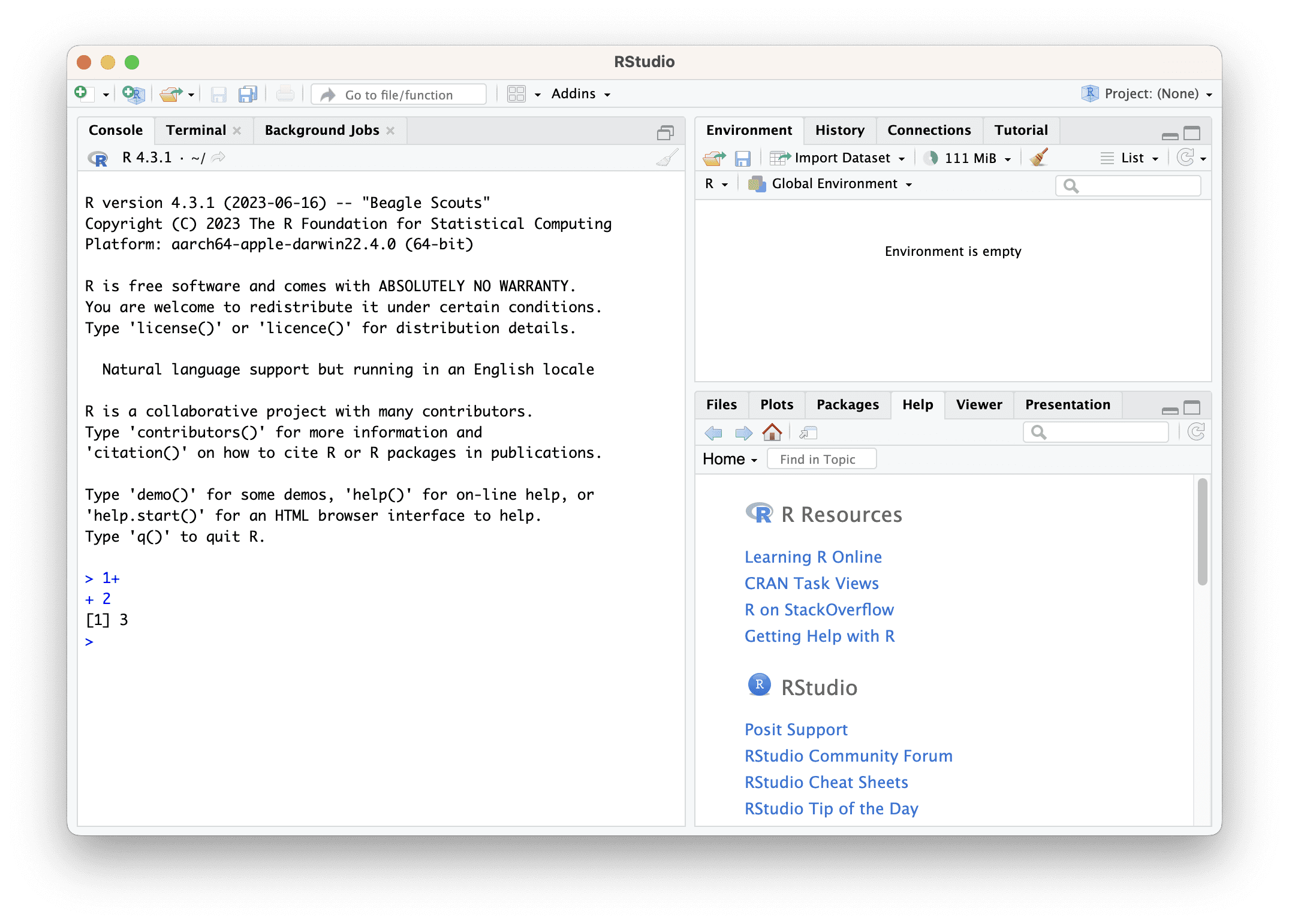R will not be solely a programming language but in addition a programming shell with read-eval-print loop (REPL). The shell is how most individuals use R. However while you drill deeper, realizing extra about what’s working behind the scenes is helpful. On this put up, you’ll study:
- How you can handle variables in R
- How you can handle packages in R
Let’s get began.

Surviving within the R Surroundings.
Picture by Claudio Schwarz. Some rights reserved.
Overview
This put up is split into three components; they’re:
- The REPL in R
- Getting Assist in R
- Package deal Administration in R
The REPL in R
“R” is a command that provides you the REPL shell. In the event you put the next right into a file, say, inverse.R:
|
A <– matrix(c(9, 5, 4, 2, –1, 0, 1, 6, –2), ncol=3) A.inv <– clear up(A) print(A) |
and within the command line, run Rscript inverse.R, you will note the next printed into the display screen:
|
[,1] [,2] [,3] [1,] 9 2 1 [2,] 5 -1 6 [3,] 4 0 -2 |
The command “Rscript” (with the uppercase R) will run the R instructions in a file line by line. In the event you run “R”, you’ll launch the shell, which you will note the immediate “>”. Equally, you may as well run RStudio, which it should run the “R” command in your behalf.
The immediate is so that you can sort the R command. In case your command is incomplete by the tip of the road, R will anticipate you to proceed. Therefore you will note the immediate “+” in such case:

In R, you’ll be able to create variables in your present surroundings. For instance:
|
a <– c(1, 2, 3) b <– c(–2, –4, –6) |
then you should have variables “a” and “b” created. It might be simple so that you can examine what variables are outlined in R if you happen to’re utilizing the RStudio. In the event you solely have the REPL shell, you’ll be able to examine the listing of variables outlined utilizing “ls()”:
Assigning new information to a variable will overwrite it, as in lots of different programming languages. In case you have a variable that you just don’t need, you’ll be able to merely ignore it. However if you wish to reclaim the undesirable variable’s reminiscence, you need to take away it utilizing:
Getting Assist in REPL
The syntax of R is usually obscure however it’s not tough to search for assist from the Web. For instance, Stack Overflow has a devoted tag for R associated questions:
However if you happen to’re within the REPL, you may as well get on-line assist, with both of the next:
Both will present you a full-screen assistance on a specific command (“ls” on this case). However if you happen to overlook what the command is, you’ll be able to search with sample:
|
assist.search(“regression”) ??regression |
Both of the above will present you an extended listing of all of the capabilities (and a one-line description) which might be associated to “regression”. Observe that if you happen to’re utilizing “assist.search()”, that you must present a quoted string, however “??” already assumed no matter follows it are strings.
The assist in the above may be very detailed however generally not useful sufficient. You may even see some examples of a specific operate, through the use of:
|
1 2 3 4 5 6 7 8 9 10 11 12 13 14 15 16 17 18 19 20 21 |
> instance(ls)
ls> .Ob <– 1
ls> ls(sample = “O”) character(0)
ls> ls(sample= “O”, all.names = TRUE) # additionally reveals “.[foo]” [1] “.Ob”
ls> # reveals an empty listing as a result of inside myfunc no variables are outlined ls> myfunc <– operate() {ls()}
ls> myfunc() character(0)
ls> # outline an area variable inside myfunc ls> myfunc <– operate() {y <– 1; ls()}
ls> myfunc() # reveals “y” [1] “y” |
The examples on this case may also help you shortly get began. However if you happen to want extra particulars to grasp each bits and items of a operate, you need to reference to the complete documentation offered by the assist() operate.
Package deal Administration in R
R is an extensible language. Lots of packages are written for R to offer new capabilities. As a result of the R group has a disproportionate variety of researchers in arithmetic and statistics, you may additionally discover fairly many research-oriented packages or implementations of cutting-edge statistical algorithms.
Just like the CPAN for Perl and PyPI for Python, the packages in R are registered within the on-line repository CRAN. There are round 20,000 packages in CRAN. You possibly can browse by their identify at:
Given you understand the identify of the package deal, you’ll be able to set up them with set up.packages("identify"). To take away that package deal, you should utilize take away.packages("identify"). Observe that that you must present the packge identify as string in these two capabilities.

To search out the listing of all put in packages can be simple in RStudio. However within the REPL, you should utilize put in.packages().
To replace the put in packages, you merely sort replace.packages() and R will ask you to verify concerning the improve.
Observe that having a package deal put in doesn’t imply R has to make use of it. To make use of a package deal, that you must load it or import it. In R, the syntax is:
which the identify of the package deal will not be quoted in calling the library() operate. You can even see what capabilities are offered by a package deal utilizing:
Abstract
On this put up, you realized the best way to work together with R. Particularly, you now know:
- How you can handle variables in R
- How you can get assistance on a operate in R
- How you can set up, take away, and replace packages in R
